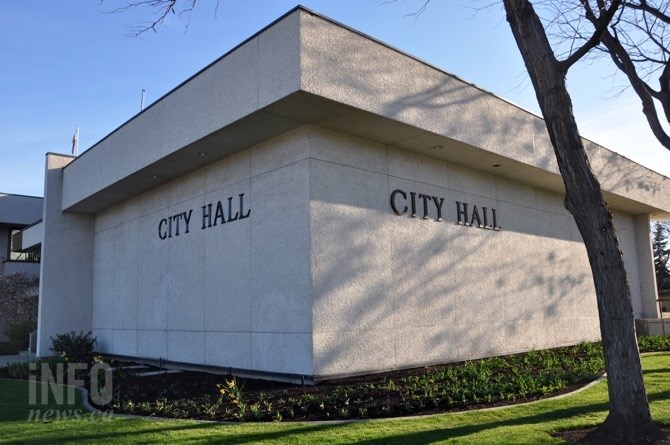
(JOHN MCDONALD / iNFOnews.ca)
June 19, 2020 - 10:00 PM
When it comes to land development in B.C. most people have heard about things like rezonings, development permits and public hearings.
But some of the most powerful tools local governments have to exert long term control over private land use are restrictive covenants.
That was demonstrated last month when a 1994 covenant protecting the roosting site for herons in Vernon was upheld by city council which ruled that building next to the site could only be done during certain times of the year when the birds were not nesting.
READ MORE: Vernon developer requests heron rookery protections be scrapped
In 2008, the Supreme Court of B.C. upheld the legality of the Simpson Covenants that had been challenged by the City of Kelowna. That means the 1946 covenants dictate that the lands where city hall stands can only be used for civic purposes and never be sold.
And a battle may be shaping up in West Kelowna over a 1973 covenant that only allows for one single-family home to be built on a Devon Road property. Neighbours are trying to stop construction of a church on that site in the hopes of protecting a turtle pond but the city is not a party to the covenant.
“There are some that municipalities are party to and others they are not a party to,” Mark Koch, West Kelowna's director of development services, said. “Potentially they are in effect if it’s a private agreement but there is no recourse to enforce a private agreement,” he said.
READ MORE: West Kelowna residents fighting to protect at-risk turtles and neighbourhood from large church development
There are hundreds, if not thousands, of covenants attached to the title of properties throughout the province.
“Sometimes zoning is a bit of a blunt tool where it’s meant to apply to thousands of properties,” Ryan Smith, the City of Kelowna’s community planning development manager said. “Sometimes there’s a regulation or a requirement for a specific property and that’s when we would often use covenants.”
That may mean protecting an environmentally sensitive area, like a steep hillside. Or it could limit the amount of commercial space allowed on a property. In rural areas of Kelowna, all new subdivisions carry covenants requiring owners to mitigate the forest fire risk.
“It’s just another way to notify a property owner that there’s a restriction on that property,” Smith said. “It’s not much different than a statutory right of way for a utility on your property. This says to the property owner: here’s a map showing you there’s a statutory right of way and you can’t put your garden shed on that. A covenant isn’t a lot different than that.”
The covenant is registered on the title of the property so, when its sold, the new owner should be looking at those restrictions and act accordingly.
It can’t be bypassed by rezoning the land or selling it.
But, it can be changed.
In the example of the commercial space, what may have made sense 30 years ago because the road network couldn’t support the increased traffic. But, if that road system changes, the owner can always apply to have the covenant removed.
That’s easier to do in land use cases such as the commercial use or height of a building. It’s less likely to make sense if the covenant protects an environmentally sensitive area that won’t change over time, Smith said.
Changing or removing the covenant can be done two ways. If it was originally put in place with a subdivision approving officer, then it can be changed by a similar staff member. But, if the covenant was imposed by a city council it will have to go back to council to be amended or removed.
And, as the Simpson Covenant showed, both parties have to agree to any change.
Covenants are referenced in Section 219 of the Land Title Act of B.C., here
To contact a reporter for this story, email Rob Munro or call 250-808-0143 or email the editor. You can also submit photos, videos or news tips to the newsroom and be entered to win a monthly prize draw.
We welcome your comments and opinions on our stories but play nice. We won't censor or delete comments unless they contain off-topic statements or links, unnecessary vulgarity, false facts, spam or obviously fake profiles. If you have any concerns about what you see in comments, email the editor in the link above.
News from © iNFOnews, 2020